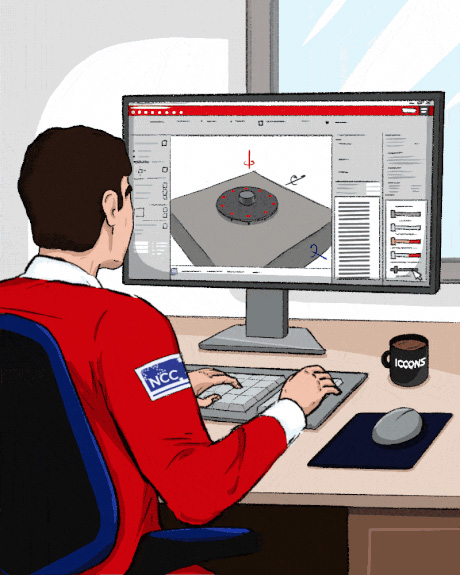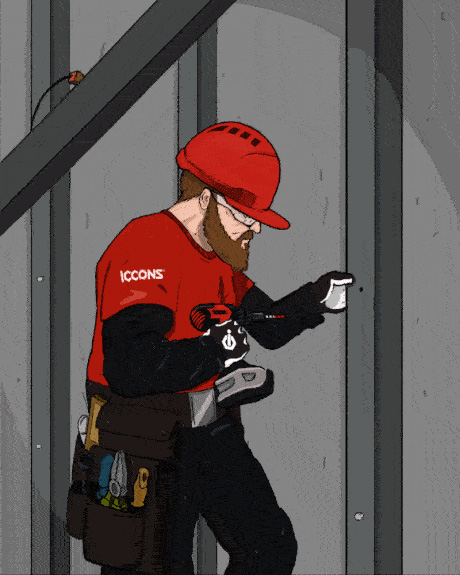About Construction Foams
Construction Foams play a vital role in the daily operations of the construction industry, offering a versatile range of products. Known for their resilience against weather conditions, chemical stability, and excellent substrate adhesion, foams have become widely embraced for gap filling, enhancing thermal or acoustic insulation, and occasional bonding and fixing applications.
Composition of Construction Foams:
The majority of Construction Foams fall under the category of Polyurethane-based foams (PU). These foams, stored in gas pressurized cans (typically in a standard 750ml format), rapidly expand upon extrusion and cure upon contact with moisture. Additionally, there are specialized foams with hybrid formulations designed for bonding and insulating due to their adhesive and elastic properties.
Distinguishing Between Gun Foams and Straw Foams:
Surprisingly, the behaviours of straw foams and gun foams differ significantly. This distinction arises from the varied levels of foam extrusion – from the can’s valve for manual foam and from the tip of the nozzle for gun foam. Notably, straw foams tend to exhibit more significant post-expansion compared to gun foams.
Primary Uses of Construction Foams:
Construction foams are primarily employed for insulation, filling, and sealing purposes and are not typically considered fixings.
Flammability Standards:
The flammability performance of foams is often evaluated using the DIN4102 standard, which categorises them into three levels:
- B1 = low flammability
- B2 = normal flammability
- B3 = high flammability
ICCONS exclusively offers B2 foams, except for FOAMFlo fire, which belongs to class B1.
Handling and Application of PU Foams:
To ensure optimal performance, PU foams should be stored upright, protecting the can valve from clogging. The application process involves cleaning and moistening the surface before applying the foam. Thorough shaking of the foam can (at least 20 times) is crucial to ensure a well-mixed composition. Application involves moving from bottom to top in a zigzag pattern.
Protection Against UV Radiation:
Polyurethane foams are sensitive to UV radiation. After curing, it is advisable to cover them with a sealant or opaque paint to mitigate the effects of UV exposure.
Critical Attributes of High-Quality PU Foams:
Top-notch PU foams should exhibit stability, deliver promised results, maintain controlled and uniform expansion, and demonstrate temperature stability. Simplicity is crucial, considering the market tendency to overcomplicate similar products.
Construction foams stand as a crucial building material, and ICCONS has developed the FOAMFLO range with a focus on Quality and Performance. The aim is to provide simple, easy-to-understand, and reliable foams to facilitate fast, efficient, and sustainable construction practices.
About Sealants (MS Polymers)
MS Polymers, or modified silane polymers, are a type of hybrid adhesive and sealant that has gained huge popularity in the construction industry. These polymers are known for their versatile properties, making them suitable for a wide range of applications. Here are some key characteristics of MS Polymers and reasons for their use in construction:
-
Adhesive and Sealant Properties: MS Polymers exhibit strong adhesive properties, allowing them to bond various materials together effectively. Additionally, they serve as excellent sealants, providing a flexible and durable seal against moisture, air, and other environmental elements.
-
Versatility: MS Polymers are versatile and can be used on a variety of surfaces, including metals, plastics, glass, concrete, wood, and more. This versatility makes them suitable for bonding and sealing in different construction applications.
-
Low Volatility: MS Polymers typically have low or zero volatile organic compound (VOC) content, making them more environmentally friendly compared to some other adhesive and sealant options. This is particularly important in construction projects where indoor air quality is a concern.
-
UV Resistance: Many MS Polymers exhibit good resistance to ultraviolet (UV) radiation, which helps prevent degradation when exposed to sunlight. This UV resistance makes them suitable for exterior applications, such as sealing joints in outdoor structures.
-
Excellent Elasticity: MS Polymers have excellent elasticity and flexibility once cured. This flexibility allows them to accommodate movement and thermal expansion and contraction without losing adhesion or cracking. This property is crucial for applications where the bonded materials may experience structural movement.
-
Chemical Resistance: MS Polymers are often resistant to various chemicals, making them suitable for use in environments where exposure to harsh chemicals is a concern.
-
Paintability: Many MS Polymers are paintable, allowing for a seamless integration of the bonded or sealed surfaces into the overall aesthetic of the construction project.
-
Ease of Application: MS Polymers are typically easy to apply, and they cure at room temperature. This simplifies the installation process and can lead to time and labor savings in construction projects.
Common applications for MS Polymer Sealants in construction
- Bonding and sealing of windows and doors.
-
Roofing applications, such as sealing roof joints and flashings.
-
Construction joints and expansion joints.
-
Bonding of various building materials.
-
General-purpose sealant applications.
It's important to note that MS Polymers come in various formulations, so the specific product chosen should match the requirements of the construction project. Manufacturers often provide guidelines for proper application and compatibility with different materials.
Suitable base materials for MS Polymers
MS Polymers are versatile and can be used on a variety of surfaces, including metals, plastics, glass, concrete, wood, and more. This versatility makes them suitable for bonding and sealing in different construction applications.
Who should use MS Polymers?
- Glazing and Window Installation: Installation of glass and windows often require the use of MS Polymers for weatherproofing and sealing joints around windows and glass panels.
-
Roofing: Roofers commonly use MS Polymers for sealing joints, seams, and flashings on roofs. The flexibility and weather resistance of MS Polymers make them suitable for various roofing applications.
-
Facade and Cladding Installers: Building facades and cladding systems may use MS Polymers for bonding and sealing panels or other facade elements.
-
Concrete and Masonry: Trades working with concrete and masonry may use MS Polymers for applications such as sealing expansion joints, bonding masonry elements, or addressing specific waterproofing needs.
-
HVAC (Heating, Ventilation, and Air Conditioning): HVAC professionals may use MS Polymers for sealing joints and connections in ductwork and HVAC systems.
-
Plumbers: Plumbers might use MS Polymers for sealing joints in plumbing systems, especially in situations where a flexible and waterproof seal is required.
-
Carpenters and Joiners: Carpentry and joinery work may use MS Polymers for bonding and sealing wood components in construction projects. This could include applications such as bonding or sealing joints in wooden components.
These examples highlight that the use of MS Polymers can be widespread across different construction trades, reflecting the versatility of these materials in various applications.










